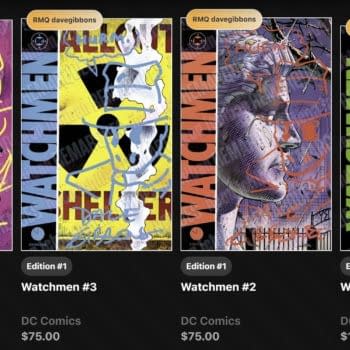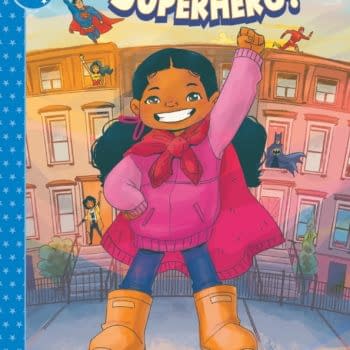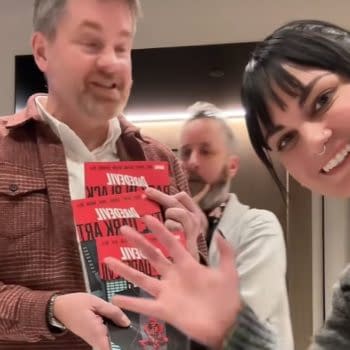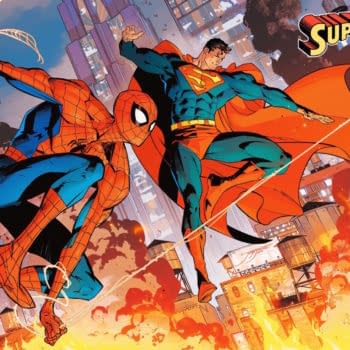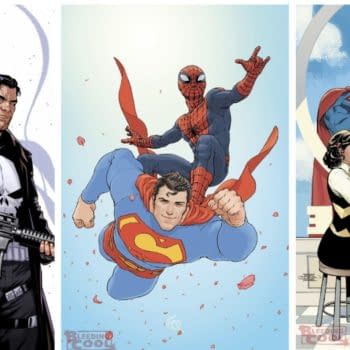Posted in: Comics | Tagged: Alan Moore, comicon, lost girls, san diego, sdcc, shannon wheeler, top shelf, zander cannon
Top Shelf's Super Awesome Secret Announcements at SDCC
Hannah Means-Shannon writes for Bleeding Cool:
Chris Ross started his digital announcements for Top Shelf this coming year by revealing that Alan Moore and Melinda Gebbie's Lost Girls will finally be available in digital format via ComiXology and Amazon, in three parts. The first part, actually, will be half price for the duration of SDCC weekend, so hop on board for a discount.

New books from British artist and minicomic maven Lizz Lunny will be upcoming every month for four this summer until August and significantly, Top Shelf will also be bringing back in digital format their first ever book series from the old days, Hey, Mister. It will appear in monthly instalments, 9 in total, chased by an all new Hey, Mister series.

Zander Cannon introduced Heck, influenced by Dante's Inferno, started as a comic production challenge, working quickly, turned into a pulpy story, and "the only thing I was doing just for myself", according to Cannon. It became an extremely personal story about responsibility and fatherhood and "all the other things that were pestering" him at the time of production.

Rob Harrell's Monster on the Hill comes out of his past with comic strips. He found himself disappointed in the grandeur of syndication and took "awful jobs" during which the idea for the book occurred to him. In the world of the book, each town in England in the 1800's has a monster on the hill, which they take great pride in, like a "sports team". When a town's monster is in a "rut" and bothers the town with his depressive behavior, they bring in a disgraced doctor to try to help cure the monster's blues. Harrell's monster sketches drawn during boring meetings for his extra day job revealed a really detailed world infused with its own mood somewhere between upbeat fairy tale and Dickensian humor.
Chris Sheradon showed a video trailer for his new book, launching this week in digital, The Motorcycle Samurai, depicting plenty of strange pop culture action gleaned from film to comic effect. "It seemed like a pretty easy idea to translate" into a comic, Sheradon said. He displayed original sketches for a kind of Evel Knevel Elvis in a desert setting, which then split into two characters in development. He even shared his original pitch material for the book, describing a "western noir". Concept art described the characters and storyline in terms of classic westerns and 70's film accents. His art style and character designs have an "animation type feel" in digital format, which give readers the chance to "control the beats" according to Sheradon. It started as a very personal project for him last year, so having it released at San Diego is a big coup for Sheradon, and during the launch will be on sale for half price online in its first instalment.
Top Shelf seems to be charging ahead and embracing digital is clearly going to be a major addition to their reputation globally. The move to digital has already resulted in some suprising new talent, looks, and themes to build on Top Shelf's achievements as they take their place not just as a founder, but a contemporary player in the expanding indie and small press market.
Hannah Means-Shannon writes and blogs about comics for TRIP CITY and Sequart.org and is currently working on books about Neil Gaiman and Alan Moore for Sequart. She is @hannahmenzies on Twitter and hannahmenziesblog on WordPress. Find her bio here.









